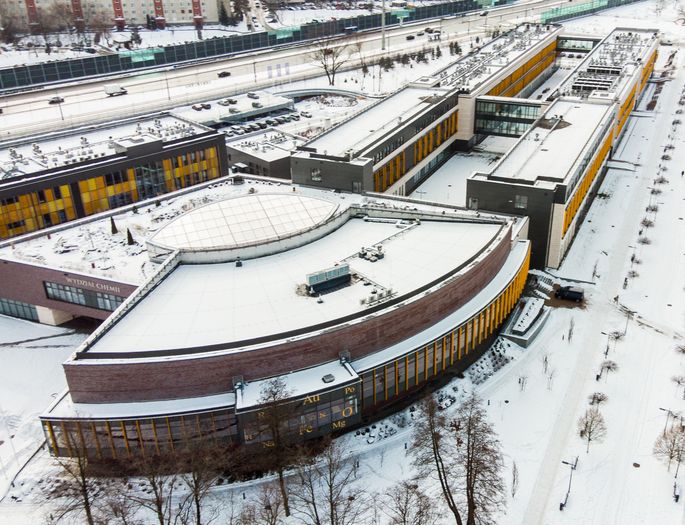
The National Science Centre has published the results of Weave-Unisono competition for proposals submitted to the Czech agency Grantová Agentura České Republiky. Polish researchers awarded in the project include Prof. Andrzej Kotarba from the Jagiellonian University Faculty of Chemistry, who carries out innovative research in the area of smart biomaterials.
The Weave-UNISONO funding scheme aims to simplify procedures of submitting and selecting research projects from all fields of study, involving researchers from two or three European countries. Selecting grant recipients is based on the lead agency’s procedure, based on the rule that only one partner institution is responsible for the full evaluation of the proposal. Within the framework of Weave, the partner research teams simultaneously apply for funding for the joint research project from the relevant host institution. The joint project must include consistent research programmes, clearly showing the added value of international collaboration.
The recently published ranking list includes 10 research teams from Poland, which will receive almost 10 million zlotys from the National Science Centre for carrying out projects in collaboration with Czech partners. Five of the grant-winning projects belong to the field of exact and technical sciences, four to life sciences, and one to the area of humanities, social studies, and art studies.
The main goal of Prof. Kotarba’s project is to develop and optimise an innovative method of embedment of bioactive substances nanoparticles into the surfaces of various polymeric materials with the use of ultrasounds. The sonochemical method enables the one-step formation of nanoparticles of dissolved bioactive substance and simultaneous incorporation of them into biomaterial surfaces. The resulting hybrid material will be thus enriched with an additional function of the controlled release of bioactive substances (such as antibiotics, anti-inflammatory, anticoagulant agents). The research hypothesis put forward in the project assumes that the release kinetics of a specific bioactive substance can be controlled by adjusting the size of nanoparticles and depth of their embedment. The research strategy consists in the synergy between theoretical and experimental approach, where molecular modelling is interlaced with experimental investigations. Understanding the molecular mechanisms of drug embedment and release is planned to be obtained from molecular dynamic simulations. The results will be used as guidelines for the development of functionalised implant surfaces.
The pioneering nature of the project, besides the combination od experimental and theoretical research methods, is due to the fact that there is no information in scientific reports on the impact of sonochemical synthesis parameters on the size, morphology, and depth of nanoparticle deposition on polymer surfaces. To achieve the project goals, it is necessary to perform comprehensive studies combining the synthesis of nanoparticles, their thorough physicochemical characterization (using a wide range of spectroscopic and microscopic methods), and to establish functional correlations between sonochemical synthesis parameters and kinetics of the drug release process.
The studies will be conducted in collaboration with the team of Prof. Lukasz Cwiklik from the Institute of Physical Chemistry of the Czech Academy of Sciences. The scientists hope that their research will not only enhance basic knowledge about polymer biomaterials design and engineering, but also provide practical guidelines on producing the next generation of polymeric surfaces with controlled medicine release kinetics. In the long term, the interdisciplinary project may prove of great practical value to the aging society, as one in every two people is expected to have an implant at an older age. At the same time, it ought to be noted that several thousand people in Poland die each year because of post-implant complications. For these reasons, implant materials and the way they are produced should be considered vital for our health and well-being.





